I have an old program written in VB6 which needs to run on 3 different platforms, including my laptop which is running Win7. I googled how to determine OS from VB6 and found some code which I slightly modified as follows:
Declare Function GetVersionExA Lib "kernel32" (lpVersionInformation As OSVERSIONINFO) As Integer
Public Type OSVERSIONINFO
dwOSVersionInfoSize As Long
dwMajorVersion As Long
dwMinorVersion As Long
dwBuildNumber As Long
dwPlatformId As Long
szCSDVersion As String * 128
End Type
Private Const VER_PLATFORM_WIN32s = 0
Private Const VER_PLATFORM_WIN32_WINDOWS = 1
Private Const VER_PLATFORM_WIN32_NT As Long = 2
Private Function GetOS() As String
Dim osinfo As OSVERSIONINFO
Dim retvalue As Integer
Dim sOS as String
osinfo.dwOSVersionInfoSize = 148
osinfo.szCSDVersion = Space$(128)
retvalue = GetVersionExA(osinfo)
Select Case osinfo.dwMajorVersion
Case 7
sOS = "?" 'Win7?
Case 6
sOS = "Vista"
Case 5
sOS = "XP"
Case 4
sOS = "Win2000"
End Select
MsgBox (sOS)
return sOS
End Function
When I run this from my WIN7 laptop, osinfo.dwMajorVersion = 5, which suggests it is on an XP machine.
What's ocurring here? Can I determine if I am running Win7 using this method? What's the best way of getting the info I need?
